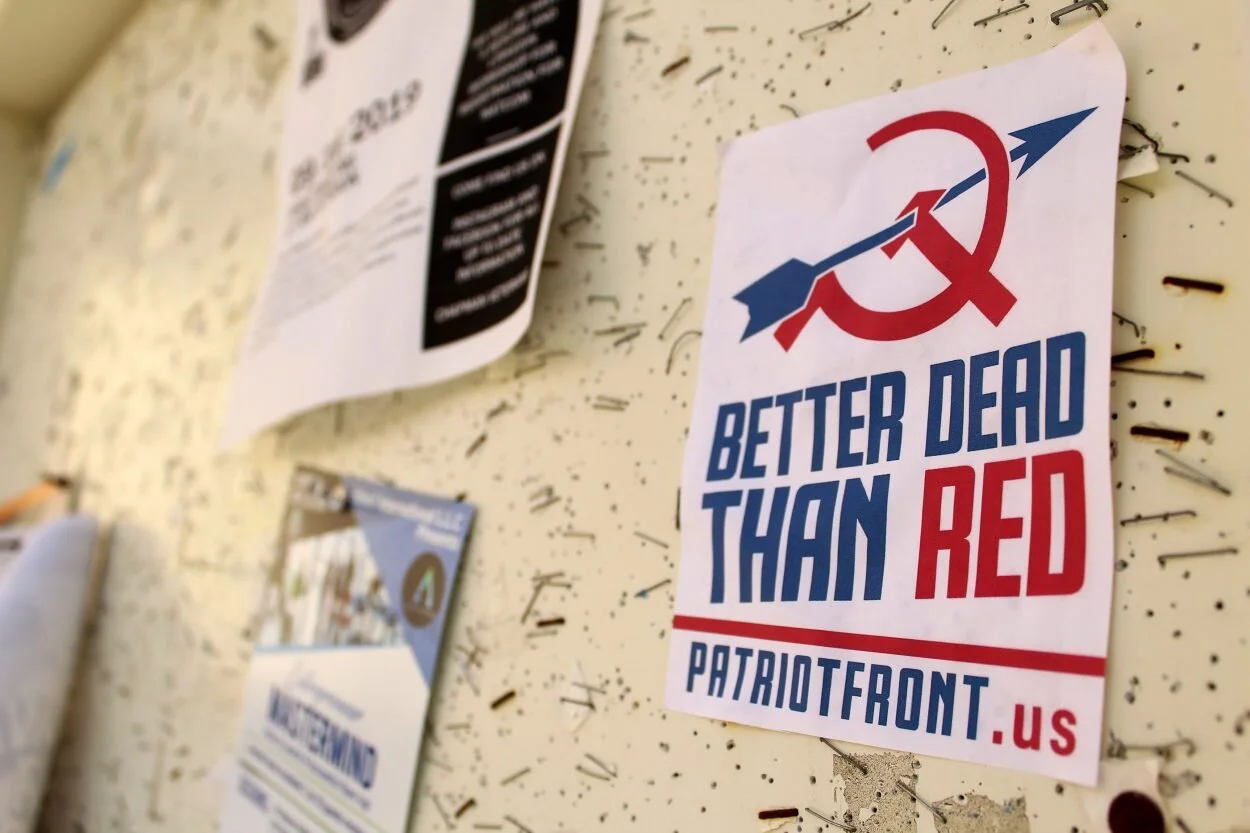Patriot Front ‘brushed under the rug’ sparks student movement
The movement originally started because of the administration’s response to the Patriot Front postings, but turned into an anti-discrimination movement. Panther Archives
Originally beginning as a civic engagement project for their Non-Violent Social Change class, Hanna Rosenheimer, Olivia Wagner, Karmen Pantoja and Livia Paschke have prompted a campus-wide movement to encourage students to speak out about the administration’s response to discriminatory behaviors on campus.
“As a person of color, you can get lost in the sea of demographics on campus,” said Pantoja, a junior political science and peace studies double major. “Personally, I didn’t even know how to react because what was I to do? We are using this project as a pedestal to assist other students that may have felt the same way.”
The group felt as though Chapman’s administration had not responded to Patriot Front, a white supremacist group and their postings during the beginning of the year. They felt that administration overlooked the safety of their students.
“I felt like the administration just brushed the Patriot Front event under the rug. That is an ongoing trend when things like this happen because nobody holds them accountable,” said Wagner, a sophomore history and peace studies double major.
“After talking to students, a lot of people from different backgrounds don’t feel like they have a place on campus and that was really disheartening.”
During her admitted students day tour, Paschke, a sophomore peace studies and philosophy double major, noticed the strong communal relations between Chapman students and administration. It was one of the reasons she came to Chapman. However, following the administration’s response to the Patriot Front postings, Paschke feels as though this sense of community no longer exists. She got involved with the project to give students the opportunity to be heard about their experiences on campus.
“Although I was not personally targeted, I thought maybe this was not the place I was supposed to be,” Paschke said.
Not wanting to limit anyone’s freedom of speech, the group wants the administration to put student’s safety first and not ignore or allow hateful speech on campus.
“I don’t think (enforcing stricter rules) is limiting free speech on campus. There is a difference between free speech and saying what you believe: saying what you believe (can sometimes) directly harm people,” Paschke said.
Jerry Price, the Dean of Students, expressed concern when learning that students would want the administration to limit what students can hear on campus.
“I would encourage students to direct their energy at the sources of the hateful propaganda, rather than at the place where the propaganda is directed,” Price said. “It is the role of the students themselves to decide what program they want to go to, what messages they want to read, what speakers they want to hear and not (the administration’s) job to tell them who they can or cannot listen to.”
However, Price encouraged the group to continue to exercise their freedom of speech and gather information to present to the administration. The group has also partnered with Jacky Dang, the Student Government Association Diversity Affairs Chair, to update and spread awareness about the student resources available on campus for those who have experienced incidents of bias or hate. Dang is working to update the Cross-Cultural Education and Research Team (CERT) incident notification form. Planning on continuing their project next semester, the group is gathering more student experiences to present an accurate representation of campus discrimination incidents to the administration.
This project has continued the discussion about the Patriot Front incident and continues to hold the administration accountable for the situation, according to Paschke.
“Even if we have one student saying they feel unsafe, that is something that the administration should take seriously,” Pantoja said. “At the end of the day, they are a student here and even if it is only one person, that one person shouldn’t feel that way.”

